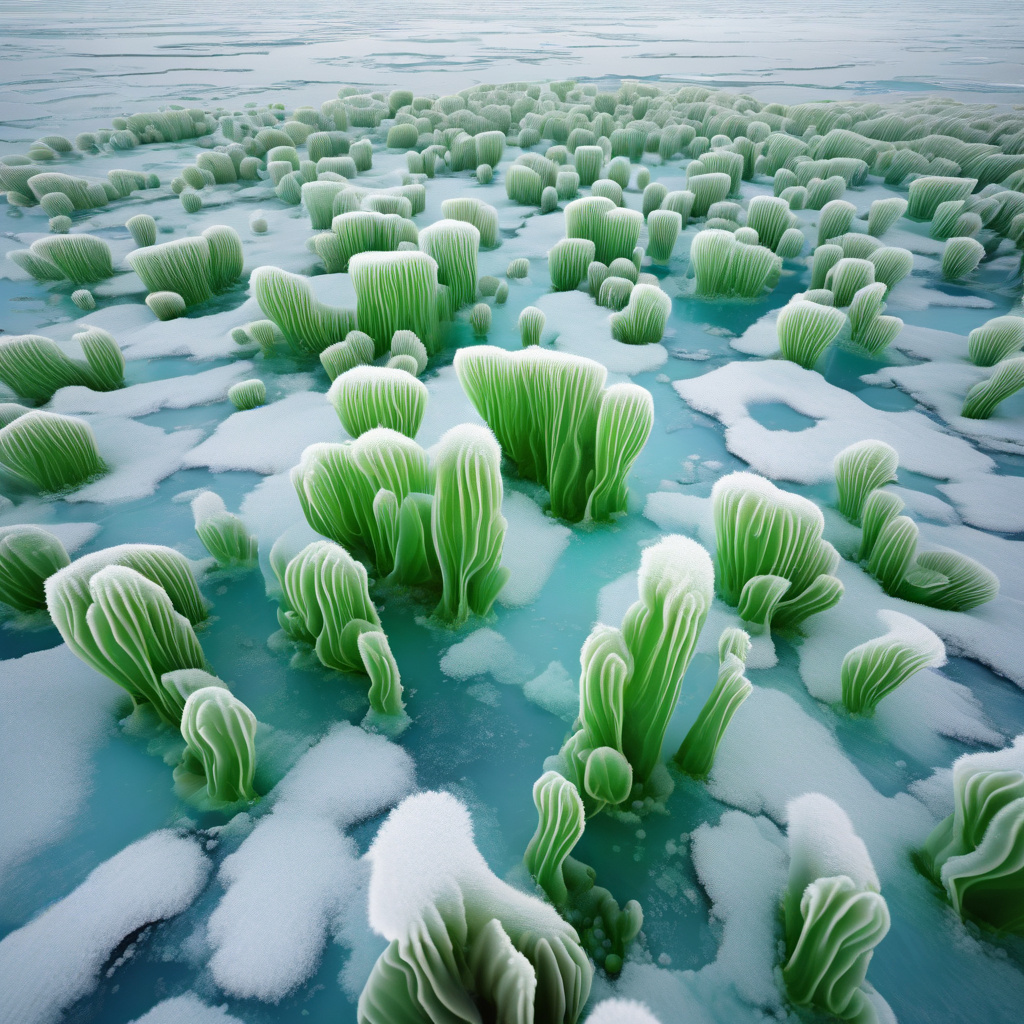Arctic Algae Show Unprecedented Mobility at -15 °C, Setting a Cold Record for Living Cells
Scientists at Stanford have discovered that single-celled Arctic algae can actively move at temperatures as low as -15 °C. This groundbreaking finding showcases the remarkable adaptability and resilience of these microscopic organisms in one of the harshest environments on Earth.
The study, published in the journal Science Advances, reveals that Arctic algae, known scientifically as Chlamydomonas nivalis, possess a unique protein that enables them to perform essential cellular functions even in extreme cold. This protein acts as a molecular motor, driving the flagella of the algae to facilitate their movement despite the subzero temperatures.
The research team, led by Dr. Elena Litchman, conducted experiments using sophisticated microscopy techniques to observe the algae’s movement at varying temperatures. They found that the algae not only survived but actively swam and navigated their icy habitat, demonstrating a level of mobility never seen before in living cells at such frigid conditions.
This discovery has significant implications for our understanding of life’s adaptability to extreme environments and could have potential applications in various fields, from biotechnology to climate science. By studying the mechanisms that allow Arctic algae to thrive in cold temperatures, scientists may uncover novel strategies for improving cold tolerance in crops, developing new technologies, or even exploring the possibilities of life in extraterrestrial icy environments.
Furthermore, the resilience of Arctic algae serves as a poignant reminder of the urgent need to protect our planet’s polar regions. As climate change continues to threaten these delicate ecosystems, understanding the capabilities of organisms like Chlamydomonas nivalis becomes increasingly crucial for devising conservation strategies and mitigating environmental damage.
In a world where the impact of human activities on the environment is becoming more apparent, the resilience of Arctic algae at -15 °C offers a glimmer of hope and inspiration. These microscopic organisms, with their extraordinary ability to thrive in the coldest motion ever recorded in living cells, remind us of nature’s remarkable capacity to adapt and survive in the face of adversity.
As we marvel at the ingenuity of Arctic algae and their cold-defying feats, let us also reflect on our role as stewards of the planet. By studying and preserving the biodiversity of Earth’s polar regions, we not only gain valuable insights into the mysteries of life but also reaffirm our commitment to safeguarding the natural world for future generations.
Arctic, Algae, Cold, Adaptability, Resilience












